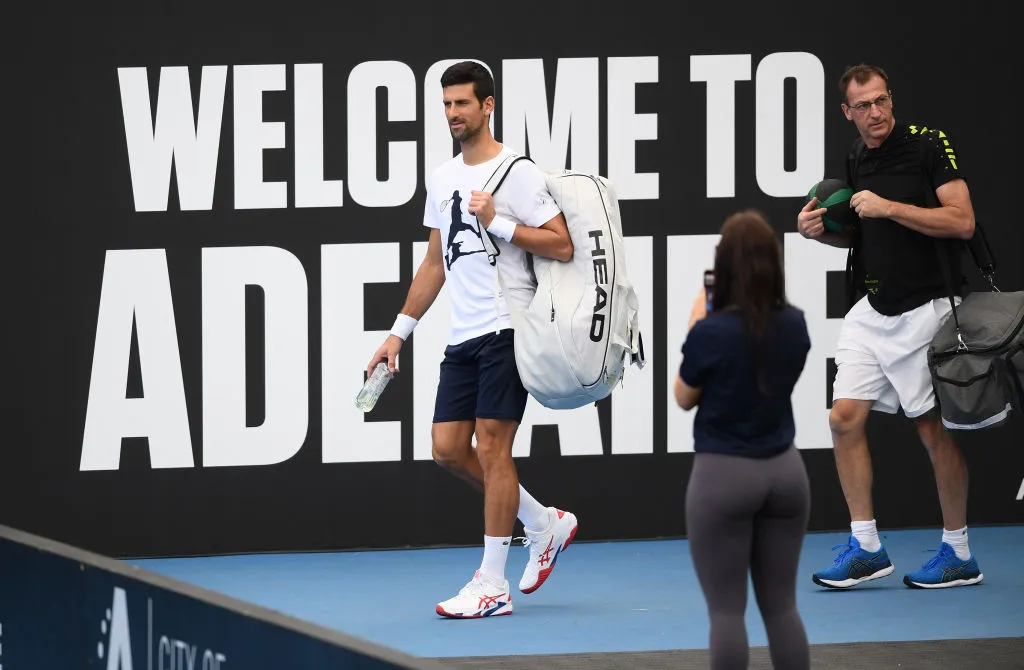Tennis star Novak Djokovic arrived in Adelaide, South Australia, on the evening of Dec. 27, returning nearly a year after he was deported from the country.
The 35-year-old Serbian tennis player was deported on Jan. 16 from Melbourne to Dubai after the federal court exercised the former immigration minister’s decision to cancel Djokovic’s high-profile visa over his vaccination status.
Djokovic’s deportation had meant he was denied re-entry into the country for three years.
But since July 2022, the Australian government has overturned all its COVID-related restrictions and requirements in Australia. Now overseas visitors no longer have to show proof of an approved vaccination or valid medical exemption upon arrival into the country.
In November, Australian officials lifted the former World No. 1 tennis star’s three-year visa ban, and granted him a visa ahead of the 2023 Adelaide International in January.
At the 2022 Australian Open, in Djokovic’s absence Rafael Nadal won the title.
“I have a great deal of confidence in the Australian public. I think we have a very well-educated sporting public particularly those that come for tennis. They love their tennis. They love seeing greatness. They love seeing great athleticism, great matches,” Tiley said, reported The Age.
“I have a lot of confidence that the fans will react like we hope they would react and have respect for that.”
“Over the years I’ve been really fortunate to start very strong in Australia and I love playing there,” Djokovic said in Dubai last week at an exhibition tournament.
“After obviously what happened earlier this year, hopefully I can have a decent reception there and hopefully that can help me play some good tennis.”
Djokovic missed two major tennis events in 2022, the Australian Open and U.S. Open. He will start his tennis campaign with the Adelaide International beginning on Jan. 1, and then the Australian Open in Melbourne from Jan. 16.
Djokovic’s visa saga had divided opinions across the country.
Djokovic said he was under the impression he could enter the country, because the Victorian state government and panels associated with Tennis Australia had granted him an exemption on the basis that he had tested positive to COVID-19 a few weeks prior to arriving in Australia.
Over a month before Djokovic was deported from Australia, former Health Minister Greg Hunt sent Tennis Australia CEO Craig Tiley a letter stating that people who had tested positive to COVID-19 within six months did not meet exemption requirements to enter the country.
“The Australian Border Force has advised that people must be fully vaccinated, as defined by ATAGI (Australian Technical Advisory Group on Immunisation) to gain quarantine-free entry into Australia,” Hunt wrote in the letter, obtained by NCA newswire.
“ATAGI notes that natural immunity from past infection is recognised in several countries, however ATAGI also notes the challenge of confirming past infection and uncertainties of the duration of protection,” National COVID Taskforce First Assistant Secretary Lisa Schofield wrote.
Upon his arrival at Melbourne, Djokovic’s visa was first cancelled by the Australian Border Force, and was taken to a detention hotel.
Djokovic’s visa was then cancelled for a second time. After losing his bid to challenge the decision, the 21-time Grand Slam champion left Australia.
Source: The Epoch Times



